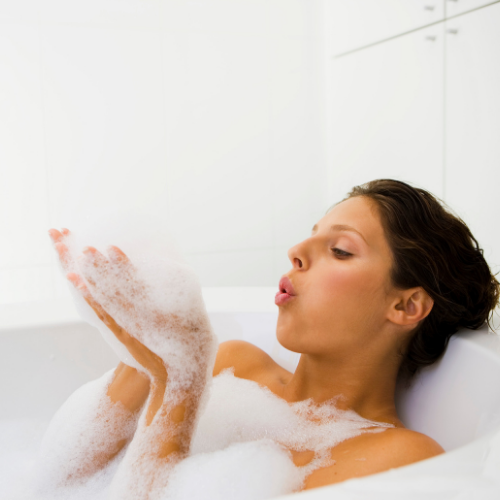Written by Natalie Stigall, Education and Outreach Specialist
Self-Care, What Is It and Why Is It Important? Going Beyond Bubble Baths
Going Beyond Bubble Baths. When we think of self-care, we tend to picture a quiet night in a bubble bath, a spa day, or a “treat yourself” shopping spree. We think of it as a luxury, not a necessity, but true self-care is essential to living a healthy, whole life. Self-care is no more or less than any conscious activity or action you engage in to promote your physical, mental, and emotional wellness. It helps us build resilience against those areas of stress in our lives, be it work-related, personal, or environmental (like living through a pandemic or dealing with a culture that excuses violence). Without it, we’re more susceptible to anxiety, burnout, resentment, and fatigue that can negatively affect our self-esteem, relationships, and even our physical and mental health. So, what does self-care look like, and how do we cultivate it in our everyday lives? Let’s break down the different areas of self-care to answer that question:
Physical Self-Care
When’s the last time you got eight hours of sleep? Moved your body in a way that promoted its health and wellness? Have you ever skipped a scheduled check-up or canceled an appointment because you had “no time?” Physical self-care is all about prioritizing the maintenance of your body by tuning in and tending to its needs. Yoga is great, but have you ever tried eating a good meal and going to bed early? Life-changing!
Social Self-Care
This one definitely looks a little different these days. Social self-care is about cultivating the relationships we value in our lives and drawing energy from being close to the people we love. And while Zoom fatigue is very real and virtual happy hours are more infrequent a year into this pandemic life, it’s so important that we stay connected with the people who bring us joy.
Mental/Emotional Self-Care
The health of your brain is just as important as the health of your body. Sometimes keeping your brain well looks like practicing a hobby: crosswords, reading, even watching TV. Other times it looks like processing and honoring your emotions. Setting healthy boundaries is self-care; journaling is self-care; seeking therapy is definitely self-care.
Spiritual Self-Care
No matter who or what you find deeper meaning in, taking time to connect with that feeling is indispensable to treating yourself with care. Some people draw comfort and connection in nature, others in meditation or religion. Cultural practices are often imbued with spiritual meaning for practitioners. But, no matter the method, seeking spiritual fulfillment is essential to caring for yourself.
I want to take a moment to acknowledge that even though self-care should be free and accessible to all doesn’t mean that it is or that it isn’t really hard to make self-care a priority. Sometimes, self-care isn’t going for runs or reaching out to a friend; it’s brushing your teeth, cleaning your room, taking your meds. It’s boring.. That doesn’t make it any less essential. And even the most stripped down self-care takes emotional, physical, and mental energy that we don’t always have. Often, it requires money or other resources like time or abilities that we don’t possess. In a lot of ways, self-care would be a lot easier if it was a long, hot bath at the end of the week instead of a daily practice. So, remember above all else that self-compassion is part of self-care, and give yourself grace.
May is Mental Health Awareness Month



